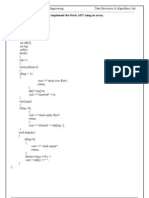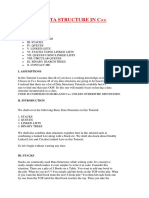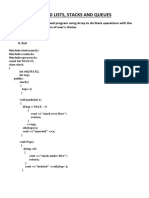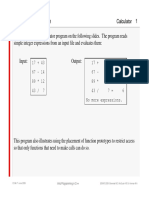0% found this document useful (0 votes)
136 views3 pagesStack With Queues PDF
This C++ program implements a stack using a linked list. It defines a Stack_LL class with methods to push, pop, check if empty, return the top element, and return the count of elements. These methods manipulate a linked list with nodes containing value and pointer fields to implement the stack functionality.
Uploaded by
UsamaCopyright
© © All Rights Reserved
We take content rights seriously. If you suspect this is your content, claim it here.
Available Formats
Download as PDF, TXT or read online on Scribd
0% found this document useful (0 votes)
136 views3 pagesStack With Queues PDF
This C++ program implements a stack using a linked list. It defines a Stack_LL class with methods to push, pop, check if empty, return the top element, and return the count of elements. These methods manipulate a linked list with nodes containing value and pointer fields to implement the stack functionality.
Uploaded by
UsamaCopyright
© © All Rights Reserved
We take content rights seriously. If you suspect this is your content, claim it here.
Available Formats
Download as PDF, TXT or read online on Scribd
/ 3




























































































